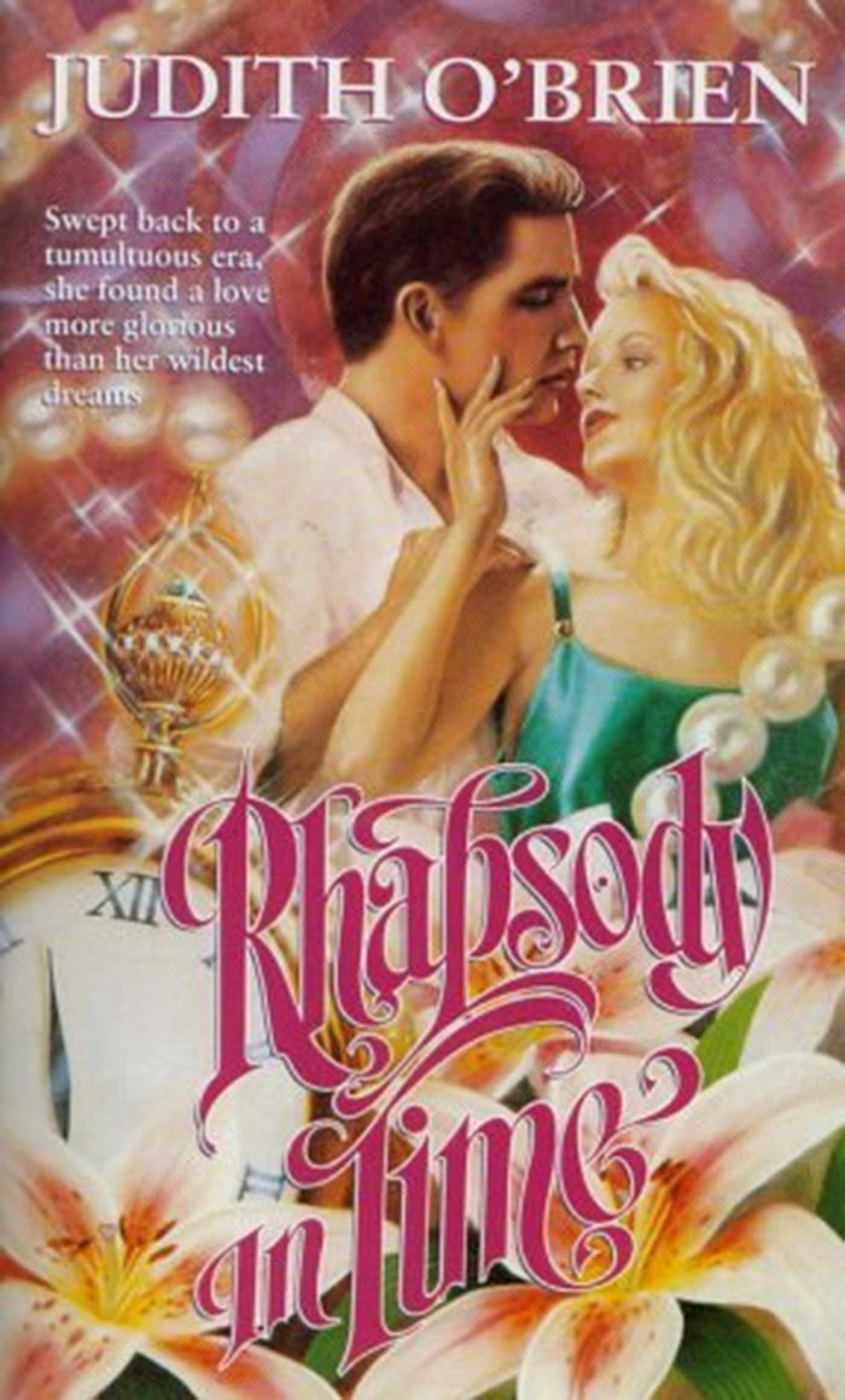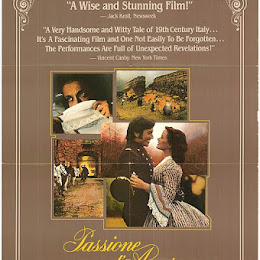 A good amount of the books in my shelves involve time travel. I just added another to my my read list - Rhapsody in Time by Judith O’Brien, a time travel romance novel written in the 90’s, in possession of one of the most delightfully garish covers I’ve ever seen. If you’d like to read a review (or look through my time travel shelf), click here to find my Goodreads profile. This book was a rare escape to the 1920’s (rather than the usual transportation to the medieval or Victorian era), and one of my very favorite things about the novel was its heroine. Instead of the usual panic and desperation - ‘Oh no, no modern amenities! I’ll never survive, I need to get back home!’ - this girl did exactly what I would do, if I were ever whisked away to 1927.
A good amount of the books in my shelves involve time travel. I just added another to my my read list - Rhapsody in Time by Judith O’Brien, a time travel romance novel written in the 90’s, in possession of one of the most delightfully garish covers I’ve ever seen. If you’d like to read a review (or look through my time travel shelf), click here to find my Goodreads profile. This book was a rare escape to the 1920’s (rather than the usual transportation to the medieval or Victorian era), and one of my very favorite things about the novel was its heroine. Instead of the usual panic and desperation - ‘Oh no, no modern amenities! I’ll never survive, I need to get back home!’ - this girl did exactly what I would do, if I were ever whisked away to 1927. She had a field day.
Overworked, poorly treated Liz McShane finds herself in New York on the day of Lindbergh’s famous landing, and from then on she spends several months skipping about on the arm of a beautiful man, buying gorgeous dresses, revelling in the beauty of the city. She knows right away that this is the world in which she belongs and, SPOILER ALERT, she gets to stay forever!
Now, I’m not naive or self-deceptive. I know that not every part of this era or any past era was perfect. When I mention my love of any part of the past (particularly Medieval times) I’m always greeted with the same caustic balloon-deflating statements. ‘You know, they didn’t have toilets.’ ‘You know, they used lead in their makeup.’ ‘You know, they treated women like objects.’ I know all those things, and I understand why some consider these aspects of life important. But do you know what else I know?
We don’t have solidarity anymore.
Let me explain what I mean. The capacity for human connection is at an extreme low. Sure, we might excel in the conventional definition of solidarity; we prioritize social justice in the media, on twitter and in elections. When I say solidarity, I mean human understanding, in its most base and immediate form. In return for the luxuries of iPhone’s and constant global awareness of everyone and everything, we’ve lost the simple ability to speak to the people in front of us, show compassion to the people next to us, and consider the people behind us. We’re self-obsessed, overprotective of ourselves and our oh so precious images, expressed only by means of Snapchat selfies and political rants. It’s no wonder that the Mayberry existence you see in The Andy Griffith Show is all but extinct. We’re too selfish and too afraid to look each other in the eyes and really talk, let alone leave our doors unlocked and sit idle on our front porches.
My main source of envy toward the people of the past lies in the potential for relationships between a man and a woman. Personally, I’ve never conceded with the belief that all men of the past were bigots, using their position of power to constantly backhand slap their wives, lock them in towers, keep them unread. The only things our population has to inform us about the past are famous novels, and we’re more likely to read what Penguin Classics and college professors put in front of us: - What a surprise! They give us social reform manifestos! That and the laws of the past, which basically stated that women were included as part of the husband’s property. But assuming every man of the past manipulated these laws is like saying every modern day American smokes marijuana. I say every era has their brutes and abusers, both male and female, but not every era has the support system originally intended by marriage.
Don’t get me wrong. I applaud every woman strong enough to carry their own weight, who have the desire to stand independently, build a career, reach the height of their ambitions. But there must be some women, some fearful, weary women - like me - who don’t have the endurance to survive the modern age. Living as a woman, in the US, in 2017, I should be empowered by that good ol’ ‘girl power’ philosophy by which our generation was all but founded; instead I often feel smothered by the new female standard, tied up and gagged by college-educating, career-building. My mouth has been covered so long by the suffocating example of my successful friends and family that I’m constantly blacking out, then waking up from my stress-induced coma without the faintest idea who I am or what my dreams used to be.
The only thing that jogs my memory are my books and movies. Oh, that’s right, I think to myself while watching Charles Boyer, Cary Grant, or even Tom Hanks, I wanted to get married! That was a nice dream. Unfortunately, the kind of romance I want doesn’t seem to exist, mostly because the kind of man I want refuses to appear. To be frank, I’m looking for someone standing proudly in the middle of the spectrum of masculinity: - a bearer of controlled strength, gentlemanly, respectful, willing to step in when I need his help, but comfortable enough to let me take command where I can. That kind of man only seems to exist in previous times, ones is which men were reverent of women. I can’t help but believe that our most recent reforms destroyed our current stock of young men, teaching them selfishness, carelessness, and above of all a lack of responsibility. Is it madness or low self-esteem that stimulates my longing for a man who will work the job, pay the bills, intimidate the offenders in my life? Or am I speaking out of an innate, biological need for a compatible partner?
The older I get, the more I suspect that I was dropped in the wrong time. My interests and my manner make me stick out like a sore thumb in my crowd. So, as far as I see it, I have two possible options. The first, and most desired, is discovering time travel! Several possible methods have been dished out in movies and books, many of my favorites directly involving a desire for romance. In Somewhere in Time (1980) Richard Collier, played by Christopher Reeve, closes himself in a room in a historic hotel, changes his outfit and his pocket change (most of it), and eliminates all the modern aspects around him. Then he tells himself he’s in a date in 1912, and voila! He’s back in time, finding a deep and powerful love with actress Elise McKenna (Jane Seymour). Damn, I love that film.
Kate & Leopold (2001) strikes a particular cord on my lonely, cynical harp. Kate (Meg Ryan) is so blinded by her desire to step up at work that she doesn’t even realize she’s unhappy. That is, until a duke from 1876 named Leopold (Hugh Jackman) comes into her life and shows her what she’s missing. Things that seem trivial but are actually essential : - someone to stand when you leave the table, provide the occasional rescue, or serve up a light gourmet breakfast of toast with mascarpone cheese and strawberries. And, let us not forget, verbally beat creeps down to the ground. Every twenty-first century girl who’s been disturbed on a date can appreciate this scene where Leopold gives Kate’s corrupt, all around nasty boss a severe Victorian burn.
Since I don’t have a historical costume, and I’m too chicken to jump off the Brooklyn Bridge, and I don’t have a flux capacitor, I might have to settle for the subtler alternative to time travel - changing the era in which we’re living now. I’m not talking anything severe, though the idea of skipping out on work and school in protest, or creating a reform school for wimpy young men tickles my fancy… No, the least invasive, most effective way to change the collective minds of society is through entertainment.
Readers, have you noticed the way everyone talks about the same movies and tv shows, how ads on instagram and facebook point lead us to writing embedded with the same old messages. Feminism, sexual freedom, racism, - yes, yes, we’ve heard it all before. We heard it even better in classic movies, and the modern voices of film aren’t nearly as persuasive. I guess that’s why this blog is here, why I’ve suddenly devoted myself to spouting off about old movies and actors of the past. I want to familiarize us all with words that are rare and untouched, emotions and needs that were lost in the chaos of our rapid-fire world, left in archives to collect dust. So, come on, everybody! All you girls who are ashamed of your longing for romance, don’t be ashamed any longer. All you people who have given up on finding peace and comfort, watch a good black and white movie. Sit back and imagine the way things used to be, and maybe our knowledge of the past will spread like a wildfire, changing our futures for the better. Maybe I’ll finally find that husband to hold me through my most stressful days. Maybe we’ll start sitting on porches at sunset, watching the kids play with something besides iPads. Maybe we’ll be human, really human again.







